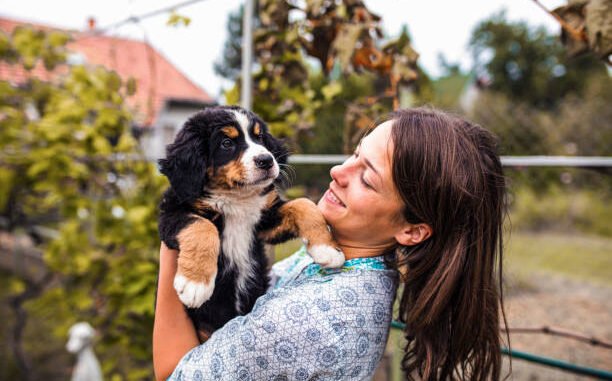
Getting a new puppy is a very exciting experience but also a workload. You’ve probably been planning the arrival of your new furry friend for months so that you can adjust your schedule when the pup arrives. Welcome a pup to your home is very interesting, but as dog breeders would tell you, you should be prepared to add some extra work to your daily activities. Getting a puppy means you are ready to make a lot of available time and commitment to them.
Regardless of the new arrival circumstances, the first 30 days from your puppy’s arrival are a month of changes for everyone involved. Let’s give you a tip of what you should know.
Before Bringing Your Puppy Home
If you plan on bringing a new puppy or dog into your home, you should take some time to prepare for the puppy’s arrival, although the time and destination needed for a dog may be limited. You can purchase a few important accessories and have them ready for your puppy ahead of time or get them as you bring your new pet home.
- Even if you have had another dog in your home before, you should ensure the new puppy has its own food and water bowl and a couple of toys. Do not mark two dogs sharing the same feeding and drinking bowl.
- Get your dog food or puppy food ready. You may have had a dog before, and note that puppy food and adult dog food are formulated differently, so make sure the food you choose is specifically for puppies.
- Get a new crate or dog cage big enough for your new puppy. But there is no need to get a new cage if you have a dog before and want your new dog to stay with the old dog inside the same big cage that is enjoyable for them.
- Please get a new leash, collar harness, and name tag for your new puppy if you want to take it for a walk.
- Purchase a brush-one grooming kit ideal for your new puppy’s type of fur. You’ll want to get your puppy used to being brushed and groomed as soon as possible, especially if it has long fur.
First Day
Day one of bringing your new puppy home is always exciting, especially for new dog owners who don’t have other dogs. Let your newly arrived puppy explore your home and sniff out its new territory. You can watch as your puppy observes while it explores, ensuring it is always out of harm’s way.
If you are not a first-time owner who already has dogs, then I guess you know what to do. You may first try introducing your new dog carefully to the ones you have before. You can even attempt to allow the new and existing dogs to meet in neutral ground, such as someone else’s front yard, to avoid territorial aggression.
You can also read: How to Stop Aggression in Dogs
Start Good Habits Early
Please don’t wait for your dog to be old before you start incorporating good behaviour with them. Start infusing good behaviour in your dog as soon as it arrives at your house; you can start by calling your pup so it can get used to hearing your voice and get used to his name. You can also train your dog to go potty as soon as possible. When you aren’t watching your puppy, put it in its crate to keep it safe, and encourage it not to have any accidents inside the house.
After a Week
After a week or so, your puppy should have been comfortable in your house, roaming around excitedly. At this point, you might be a little tired from the work your new puppy is doing. It should be pushing the limits and chewing things. It shouldn’t be chewing, barking, and having potty accidents in the house.
Be Consistent With Training
Be consistent and patient with your training, as puppies might not learn quickly. Continue to praise it when it does the right thing, or you can you
You can use the best training method, positive reinforcement, or distract it with a toy to stop it from doing the wrong thing.
Go to the Vet
Ensure you visit the vet as soon as you get your dog so your vet can give your puppy a full physical examination, vaccinations, a faecal analysis, etc. Ensure your puppy’s urine and faeces appear normal because it is common for puppies to get urinary tract infections and have intestinal parasites. After your first visit at the vet, your vet will tell you that you have the vaccinations that need to be completed in specific, timed intervals for them to be effective, so you won’t want to let your puppy get off schedule.
30 Days
Your new puppy should have visited the vet at least once for vaccinations. Depending on its age, it may need multiple future visits to complete its vaccinations. It would help if you also began giving your puppy regular preventive medications to protect against fleas, ticks, intestinal parasites, and heartworms. These medications are usually given monthly but ask your vet for their recommendation.
Conclusion
It’s normal if your existing dog and the new puppy haven’t bonded yet. Building a strong relationship between dogs can take time and patience. It’s important to give your older dog the space and time to adapt to the new addition to the household. Just be patient and allow them to get used to each other at their own pace.
Leave a Reply